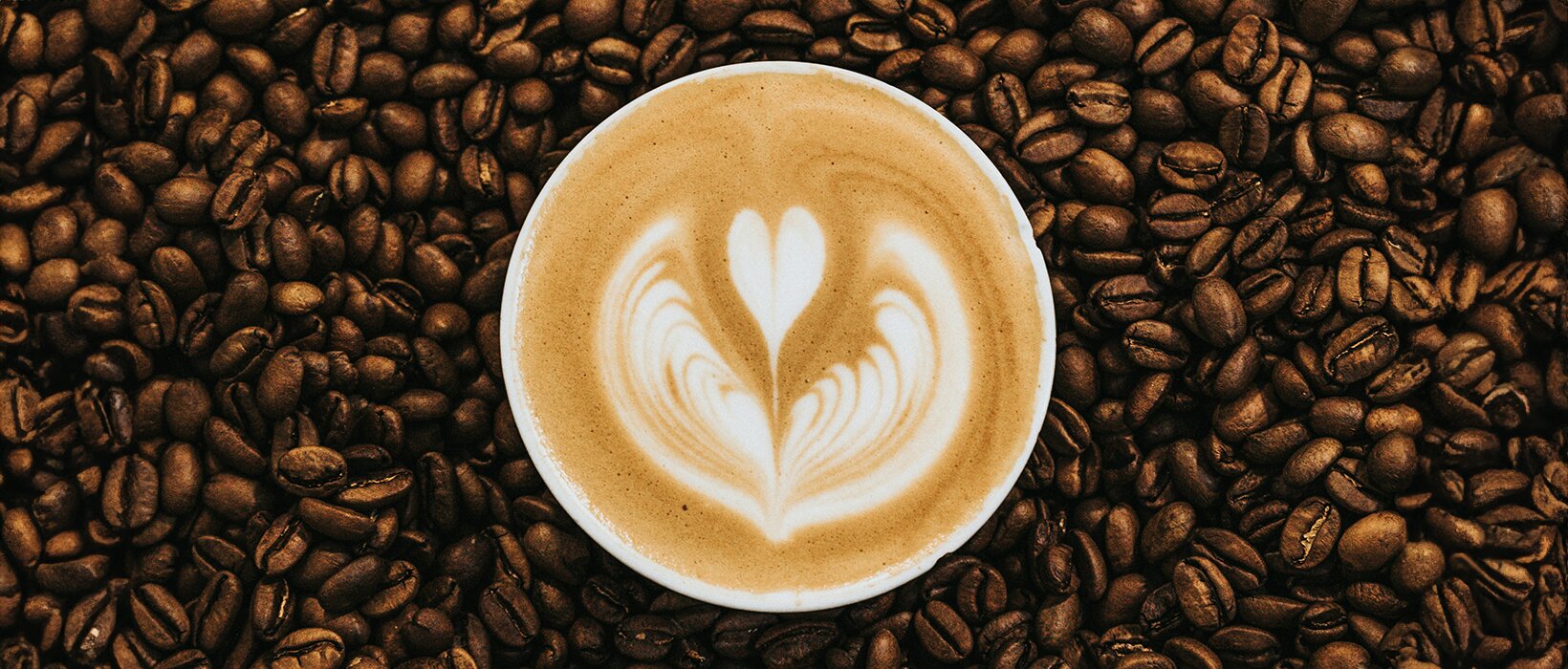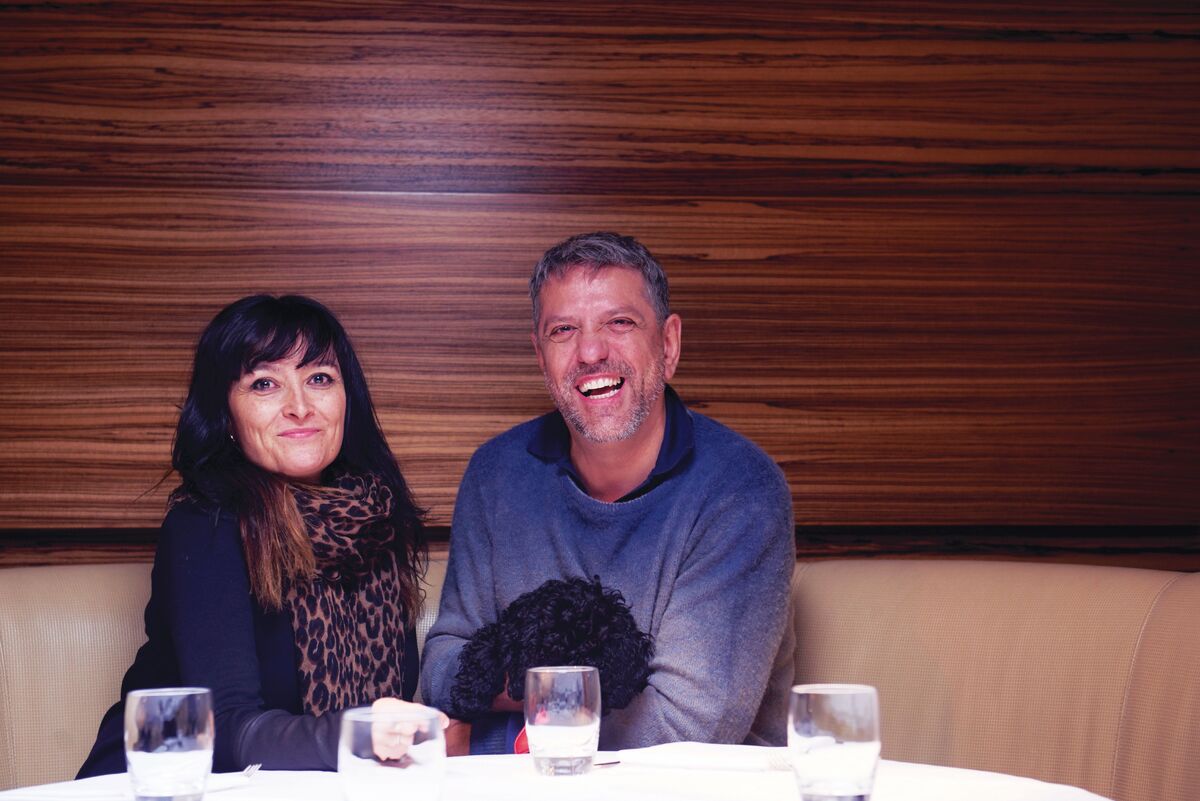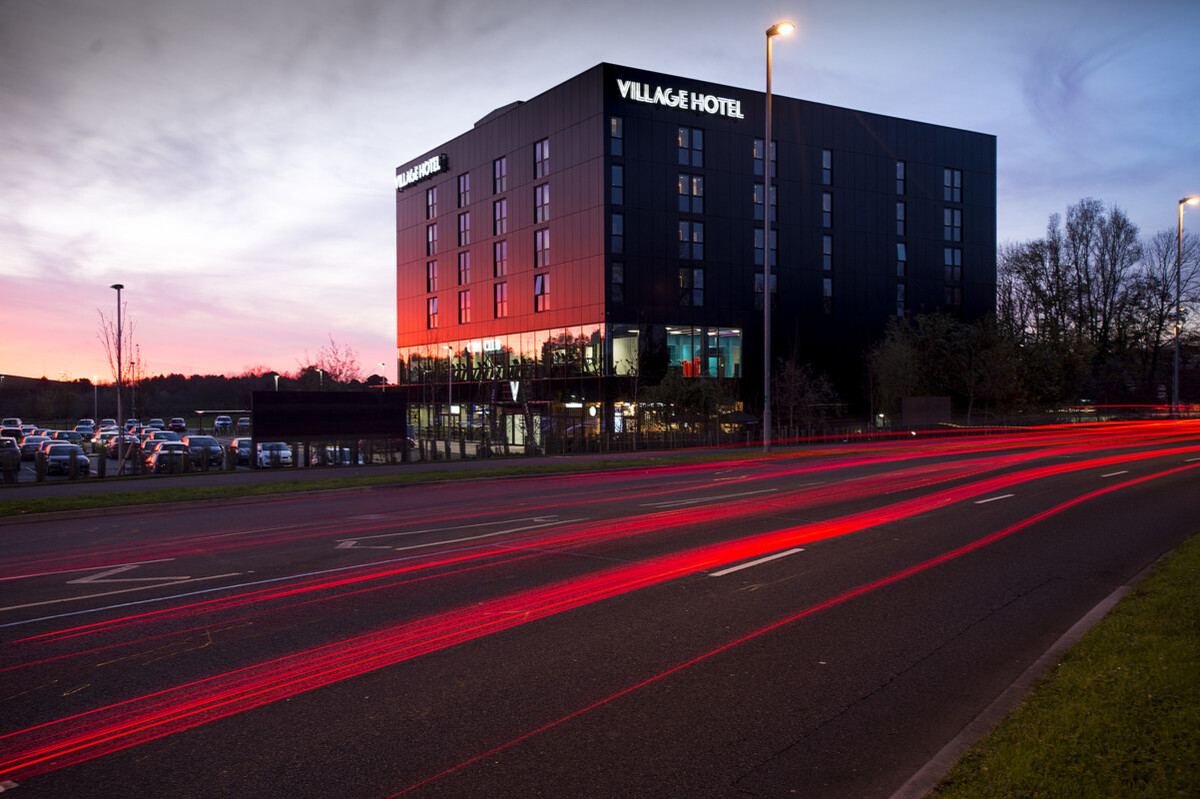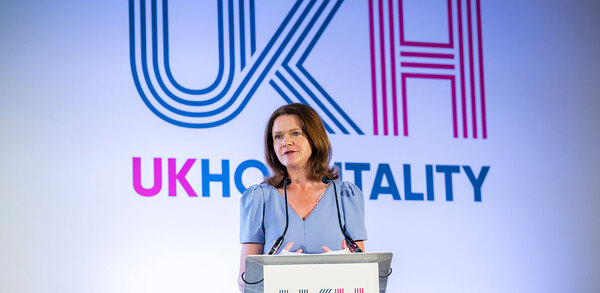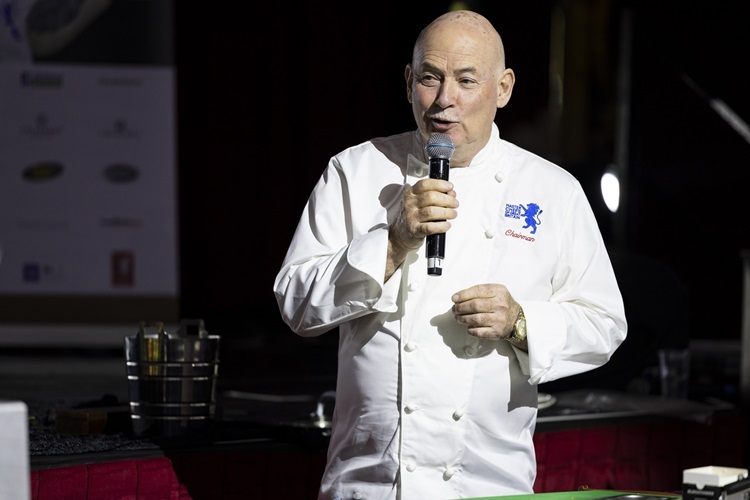What's hot in coffee?
Hot beverage rules for 2024 are anything but lukewarm, with artisan hot chocolates and high-quality robusta coffee leading the trends. Ian Bougton reports
Hot beverage rules for 2024 are anything but lukewarm, with artisan hot chocolates and high-quality robusta coffee leading the trends. Ian Bougton reports
The hot beverage sector does not stand still and each year brings new developments and trends – the puzzle is in knowing which ones will sell.
Market analyst CGA’s The Hot Beverages Spotlight says that more than a quarter of consumers expect to spend more on hot beverages this year, with twice that many saying they will specifically pay more for a better quality drink. The most optimism is being shown by the suppliers of hot chocolate, who are seeing a development into single-source and artisan products. They say hotels and restaurants are still relying on easy, familiar products when they could do better with imaginative sourcing.
In coffee, the progress of iced and cold-brew coffees is expected to continue, but curiously, it has also been suggested that we are seeing a reverse effect after a trend for better home coffee. The theory is that a few years ago, brands began improving retail coffee so that consumers could get as good a drink at home as they did in a coffee shop. Nowadays, domestic or retail coffee is of a higher standard than that served in many hotels or restaurants, who will now have to fight to get the business back.
It has also been suggested by the coffee trade that customers are looking for a more identifiable flavour than just a generic coffee taste. Here, the trade has a clear difference of opinion in the matter of coffee ‘strength’.
Greg Harvey, out of home sales controller at Taylors of Harrogate, says: “There is a perceptible increase in demand for quality in decaf teas and coffees. “We are seeing increasing numbers of consumers choosing to cut caffeine as the day goes on, with over a third going caffeine-free in the later afternoon and early evening. Having a good decaf is now essential.”
Laura Harper-Hinton, chief executive of the Caravan coffee roastery, agrees: “This is a major trend we’re seeing with our out-of-home partners. Coffee’s popularity continues to rise, as alcohol consumption decreases – it has never been more important to serve a quality decaf blend.”
High-caffeine craze
In very sharp contrast, there is a perceptible rise in the popularity of robusta, the tough high-caffeine coffee. This has never been a respected coffee and is generally used in instant coffee or to give an espresso blend its distinctive ‘kick’.
A couple of years ago, the Black Sheep Coffee brand drew a lot of attention with its branded Robusta Revival all-robusta coffee, and suddenly there have appeared a collection of all-robustas, some from very familiar names. A new arrival is Blue Turaco, whose founder Wycliffe Sande notes that the appreciation of robusta as a ‘speciality’ coffee is still unusual. A ‘speciality’ coffee is a specific distinction, used only for coffees scoring over 80% in a recognised international quality rating – robusta coffees were rarely seen in that sector, but Sande’s Ugandan coffee does qualify.
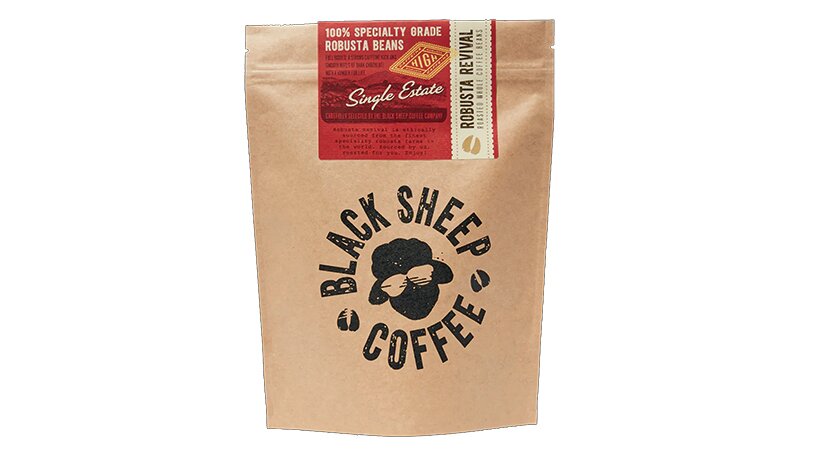
“Robusta is the next big thing in coffee,” he says. “The world is waking up to it. In coffee shops, it’s increasingly popular with those who prefer a bold, strong cup of coffee.”
Equally unusual is the growth in recent years of cascara, which is the skin of the coffee cherry brewed rather like a herbal tea. Coffee people have known about it for years without it making any public impact, but Chris Tough, coffee buyer at the Lincoln & York roastery, says it is now one to look out for. “Cascara is now more widely available and is set for expansion. Its unique taste lies somewhere between coffee and tea – fruity, slightly floral, while packed with antioxidants and significantly less caffeine. This will be one to watch in the year ahead.”
Crucially, this cascara is not the same plant as cascara sagrada, the known laxative.
Land grab
Elsewhere, Tough says sustainable sourcing will become more of a talking point, with an unexpected hazard ahead.
“The land suitable for growing coffee is predicted to decline by half between now and 2050, while demand in the same period is expected to double. New EU legislation will affect this problem. From December 2024, coffee produced from land which has been subject to deforestation in the past three years will not be accepted on the European market. This will force coffee companies to prioritise the sustainable sourcing of their produce.”
Interest in sourcing is increasing, says Jon Read, chief executive officer at coffee vendor Paddy & Scott’s: “Customers are interested in the origins and sourcing of coffee. We receive a growing number of enquiries in this, and it has become a crucial business factor.
“We see that as consumers become more aware of the rising cost of living, they are increasingly discerning about the origin and quality of their coffee. It may well still be seen as ‘the affordable indulgence’, but they now expect exceptional quality in return. An average cup of coffee simply won’t suffice any more.”
This can be seen in the market, agrees Joe Stockwell, business development manager at Caffeine Limited: “More consumers will now go out of their way for quality beverages rather than just settling for anything. The Covid lockdowns gave people plenty of time to think about what they really like, and they are now actively seeking out places that serve high quality coffee.”
The lockdown increased the brewing of quality coffee at home, notes Phil Smith, head of category at UCC, with a curious result. “In retail, we see significant growth in whole beans, indicating that drinkers are making a better cup of coffee at home. This is a threat for the high street – out of home coffee now needs to compete with the high-quality coffee available at home.”
This also applies to those who serve in-house coffee in the workplace and similar establishments, notes Matt Wood, managing director of Lexington, a business and industry catering specialist.
“We must now not only compete with, but exceed the high street in terms of quality, customer service, and social value – we now have to work hard to ensure that in-house hot beverages become part of the daily routine of the customers.”
Feel the cold
Cold coffee is widely predicted to expand. The ‘cold brew’ trend began as a specialist interest for connoisseurs, with the belief that coffee steeped in cold water for a long time, often overnight, produces a flavourful, smoother coffee. As no caterer is likely to want to do this themselves, many brands saw an opening for ready-brewed and pre-packed cold coffee for the catering trade.
“This has seen meteoric growth,” says Sian Edwards, group insights manager at beverage supplier Finlays. “We found that 33% of drinkers associate cold brew with improved flavour, and this belief is sure to continue fuelling cold brew’s high growth. The greatest demand will be for dispensing capability, such as pump bottles. These provide benefits such as allowing customisable coffee strength and reducing wait-time and wastage.”
At Grind, head of coffee Howard Gill saw the same, and has developed an entire range of slow-steeped coffee in cans. He says: “This is the real trend – our ready-to-drink cans have been selling out constantly since we launched. Cold coffee drinks are blurring the lines between soft drinks and espresso, and we’re seeing a lot of demand coming from a younger demographic – late teens, early twenties.”
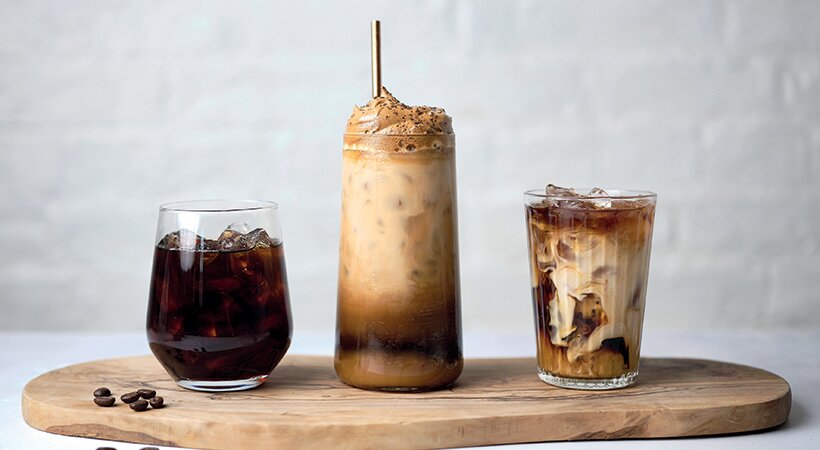
Top of the choc
By contrast, hot chocolate drinks offer this year’s biggest trend, say several companies. It was Kokoa Collection who first gave chocolate the same single-origin status as coffee, and managing director Paul Eagles sees this now growing across the sector.
“It’s a really exciting passage of time for the world of hot chocolate, and I’m proud that Kokoa Collection played a crucial part in it,” he says. “With the roll-out of Knoops chocolate cafés and the sale of Hotel Chocolat, there is a real buzz around hot chocolate, driven by the factors we first argued – the use of solid chocolate rather than powder, and the clear explanation of single origins and their differences. We have now seen a gradual shift to the darker cocoa percentages.”

At Farrer’s, general manager Rob Baines says that the wider hospitality trade has taken up an idea first seen in coffee shops: “Hotels and restaurants are getting pretty creative in the way they present hot chocolate – they are increasingly starting to mimic leading chocolate bar formats by using syrup flavourings and adding seasonal twists with themes such as Easter, Halloween and Christmas. This innovation will only continue to grow.”
Restaurants are also taking greater interest in hot chocolate, agrees Lize Gerritsen, marketing manager at Cocoa Canopy: “The premium drinking chocolate category continues to grow, and we’re expecting more restaurants to add this to their menus in response to consumers looking for a caffeine-free after-dinner drink. This lifestyle choice is increasing.”
Cocoa Canopy supplies its chocolate in a ‘bead’ format, which is said to dilute better.
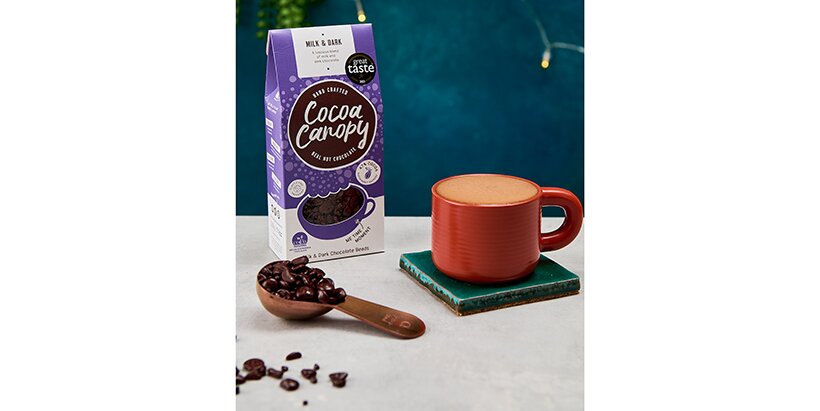
At gelato and beverage machine manufacturer Carpigiani, sales manager Paul Richards says chocolate is a big opportunity, but to keep it simple: “The artisanal hot chocolate trend presents a real opportunity for operators. It’s no longer a seasonal drink and is a popular choice no matter at any time of year. The availability of luxurious and indulgent hot chocolates has become commonplace.
“But artisan offerings don’t need to be smothered in whipped cream, marshmallows and sprinkles. The quality of the drink itself should be allowed to sing, as a less-sweet, less-creamy beverage offering smoothness and a deep, rich cocoa flavour.
“Simple, yet luxurious, hot chocolate is what hits the mark this year.”
Suppliers
Black Sheep Coffee leavetheherdbehind.com
Blue Turaco blueturacocoffee.com
Caffeine Limited www.caffeineonline.co.uk
Caravan caravanandco.com
Carpigiani www.carpigiani.co.uk
Cocoa Canopy cocoacanopy.co.uk
Farrer’s farrerscoffee.co.uk
Finlays www.finlays.net
Grind grind.co.uk
Kokoa Collection kokoacollection.co.uk
Lexington www.lexingtoncatering.london
Lincoln & York www.lincolnandyork.com
Paddy & Scotts paddyandscotts.shop
Taylors www.taylorsofharrogate.co.uk



